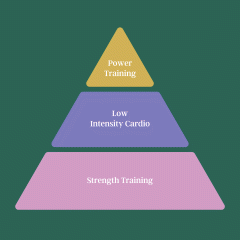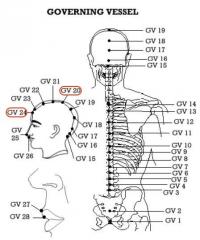One of the inevitabilities of modern life is that we are more accessible. The days when someone had to geographically find you first when they need to contact you urgently are long gone. Now, no matter where you are in the world, they can contact you via your mobile phone number, email address, or social media accounts. These cause what we call “digital distractions.”
In so many ways, this is a wonderful advancement of technology. Why would you not want to be available for your friends and family when they need you? And wouldn’t you want to know of an impending crisis at work as soon as it starts to happen?
Unfortunately, being available to everyone 24/7 can also be a huge drain on your ability to get on with the things you have identified as being important to you, such as learning and education.
In this fast-changing world, staying on top of the latest developments in your industry, being able to adopt new skills, and learning new technology need time, and time is one resource we all struggle to find more of.
These demands for our time from our friends, colleagues, bosses, and customers eat into our precious twenty-four hours each day and take a toll on our energy levels leaving us feeling exhausted at the end of the day—not the best condition to be in when you want to learn.
So, what can you do to minimize these digital distractions and increase your focus?
Below are some tips and tricks that have worked for me and have helped me to keep up with the latest developments in education, communication, and productivity while minimizing digital distractions.
1. Learn at Your Best Time of the Day
This is the starting point for anyone who wants to embark on a study program, whether a formal college course or an online course to learn a new skill. What do I mean by ‘your best time’?
It is easy for us to say to ourselves, “tomorrow, I’m going to start learning Japanese”. We decide when we get home after work we will sit down for an hour and begin.
Unfortunately, most of us will find when we do get home at the end of the day, our willpower has diminished, and we just ‘don’t have the energy’ to start today. So, we say we will start tomorrow. And the cycle repeats.
What’s Happening?
Your willpower is letting you down. Studies have shown that our willpower has a limit and as the day goes by, we use up more and more of our willpower.
Making decisions about what to eat (and not eat for lunch) telling yourself you won’t have that extra cup of coffee in the afternoon, saying “no” to a friend who wants to have dinner tonight (you can’t because you are going to study Japanese)—all these things add up throughout the day, and they deplete your willpower.
Finally, when you do get home and the appointed hour for your Japanese study arrives, you just cannot do it. You’re ‘exhausted’, and you just want to finish watching this last episode of The Crown on Netflix. And the cycle again repeats.
To avoid this, understand the best time to do your learning is in the morning when you have the most reserves of willpower. At this time, you will find resisting all distractions much easier.
Whether you think you are a morning or a night person, the truth is your brain will always be at its best first thing in the morning. It is when you are at your most creative, most focused, and have the highest reserves of willpower.
This does not mean you must wake up at 5 AM to do your studying. What it means is if you want to get the most out of your hour of learning, the best time to do it is soon after you wake up. So, if you wake up at 8:00 AM, try and do your studying between 8:30 AM and 9:30 AM.
If you have to be at your workplace by 9:00 AM, consider using your commute time to study. You can always listen to podcasts, online courses, and the likes on your mobile phone. The key is to use the morning for the bulk of your study time.
2. Turn On “Do Not Disturb” When You Study
You knew this one was coming, didn’t you? It’s common sense. If you want to get the most out of your study time, you must reduce distractions. Full stop. And that means turning off your digital distractions.
I do my reading late at night. I like to wind down the day with thirty minutes or so of reading. I use the Kindle app on an iPad Mini and that iPad is dedicated to reading only. I have all notifications turned off, I have no social media on the device, and the only apps I have are apps associated with reading and my notes app, so I can grab quotes and ideas as I am reading.
I also use this iPad for learning. This means I can listen to an audio learning program and take notes simultaneously. Because all notifications are off, I don’t get disturbed and focus completely on what I am learning.
3. Change Your FOMO Mind
One societal issue in today’s world is FOMO—the Fear Of Missing Out—and that causes us to always feel the need to be ‘connected’. FOMO is one of the main causes of digital distractions. You must prevent this from creeping into your study time.
You can do this by checking your messages and email before you start your study period. You need to get it off your mind and not be worrying about what may be lurking inside your inbox. So, before you start, do an email and messages check. It will give you peace of mind knowing the world outside is not descending into chaos and everything will be okay for the next hour.
Note I did not say “do your email”—you only need to do a check. I know this is counter to many of the arguments about checking email and messages first thing in the morning, but the problem is if you do not do it, you will be distracted by worrying about what is in there.
Put your mind at rest and deal with it before you start. Nine times out of ten there will be no emergencies.
“The real troubles in your life are apt to be things that never crossed your worried mind; the kind that blindside you at 4 PM on some idle Tuesday” –– Bas Luhrmann
You need to be at peace with the world before you start an effective study period. Worrying about what may or may not be lurking inside your inbox will not give you that peace.
4. Tell Others That You Will Not Be Available
Seriously, you can do this. You do not have to be available 24/7, and everyone can wait an hour or so for you to get back to them.
I have tested this ad nauseam and never once has anyone ever complained because it took me an hour to get back to them—including my wife! The reality is, you are not as important as you think you are. Don’t be so arrogant.
When you tell people what you are doing and that you are not available, people will respect your time. This has been tested with clients, bosses, family members, and friends. No one has ever said to me “you must be available for my messages, calls, and emails every minute of the day” And if they ever did, I would be questioning why they are in my life at all. No one should ever have that much control over your life.
Imagine you had to go to the dentist for an emergency to take care of an unbearable toothache. As you are in the dentist’s chair with the suction tube and drill in your mouth, your most important client called. Would you answer the phone? Of course not—well at least I hope you wouldn’t.
Treat your study time the same way—no calls, messages, or anything else that will detract you from your purpose of learning.
5. Turn Your “Should Do” Into a “Must Do”
We all have things we “should do” and invariably, it’s our “should-dos” that never get done—“I should exercise”, “I should lose weight”, “I should clean out my closet”, “I should call my parents,” etc.
All these “shoulds” pile up and never get done because they are not priorities. “Should-dos” have no urgency attached to them, and so they fall to the bottom of the pile of things we want to do.
If you want to free yourself from distractions so you can spend time learning, then your learning needs to become a “must do”—“I must study today”. When you change a “should” to a “must”, it becomes a priority. A “must-do” is non-negotiable—it is a red line.
The trick with this is to plan the day ahead. We all have things we need to do each day, but not all of those things are priorities. Many of them are things that we would ‘like to get done today’. Before you close out the day, give yourself a few minutes to look at your calendar and to-do list and flag one or two things you must do tomorrow.
Doing this the day before prepares your mind for the day ahead. You begin each day knowing exactly what you must do, and we are much more likely to focus our attention on those one or two items we must do. Make sure your learning is one of those you have assigned a flag to and make it happen.
A good way to do this is to use your calendar for your priorities and your to-do list for your non-priorities. When you use your calendar for these, you are allocating time for them. When you have allocated time, you reduce your excuses and they are much more likely to happen.
Key Takeaways
Remember to allocate your study time to the mornings. Your brain is at its best and you will find concentrating much easier. Second, turn off all notifications while you are in your study time. Don’t worry, the world is not going to end while you learn.
Tell your friends, colleagues, bosses, and clients that you are not available during your study time. And lastly, block time off on your calendar and make it a must, not a should.
If you have a hard time getting focused and avoiding digital distractions, remember these tips and you’ll notice improvement.
More Tips on How to Avoid Digital Distractions
Featured photo credit: Maxim Ilyahov via unsplash.com





























































